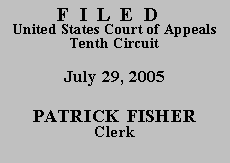

| UNITED STATES OF AMERICA, |
|
Mr. Bates pleaded guilty and was sentenced to the mandatory minimum term of 10 years imprisonment. See 21 U.S.C. § 841(b)(1)(B). As part of his plea agreement, Mr. Bates waived his right to appeal any sentence within the applicable sentencing guideline range. Mr. Bates' counsel has not identified any meritorious bases of appeal. We are likewise at pains to identify any non-frivolous claim. Mr. Bates was sentenced to a mandatory minimum term of imprisonment. Owing to his criminal history, he was not eligible for a "safety-valve" reduction under 18 U.S.C. § 3553(f)(1). Nor did Mr. Bates qualify for a substantial assistance reduction under U.S.S.G. § 5K1.1. The sentence clearly fell within the applicable guideline range, and there is nothing in the record that would lead us to conclude that Mr. Bates' waiver of appellate rights should not be given full effect.
Accordingly, we DISMISS this appeal as frivolous and GRANT counsel's motion to withdraw.
Entered for the Court
Paul J. Kelly, Jr.
Circuit Judge
*. This order and judgment is not binding precedent, except under the doctrines of law of the case, res judicata, and collateral estoppel. This court generally disfavors the citation of orders and judgments; nevertheless, an order and judgment may be cited under the terms and conditions of 10th Cir. R. 36.3.
2. After examining the briefs and the appellate record, this three-judge panel has determined unanimously that oral argument would not be of material assistance in the determination of this appeal. See Fed. R. App. P. 34(a); 10th Cir. R. 34.1(G). The cause is therefore ordered submitted without oral argument.